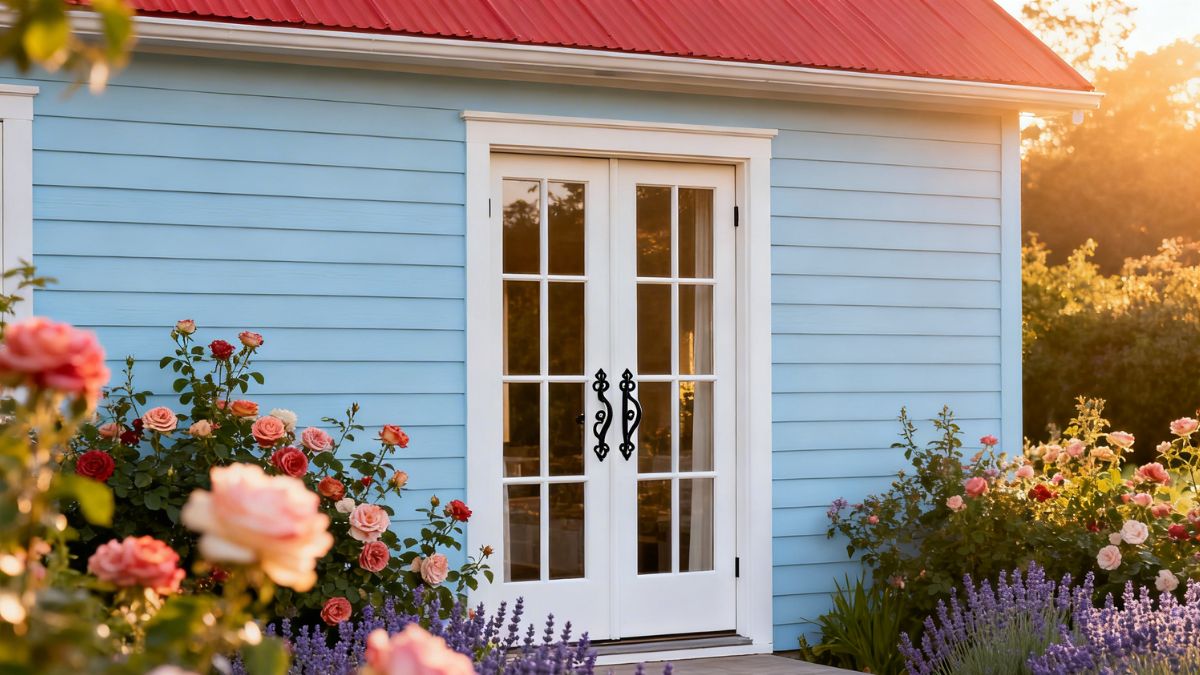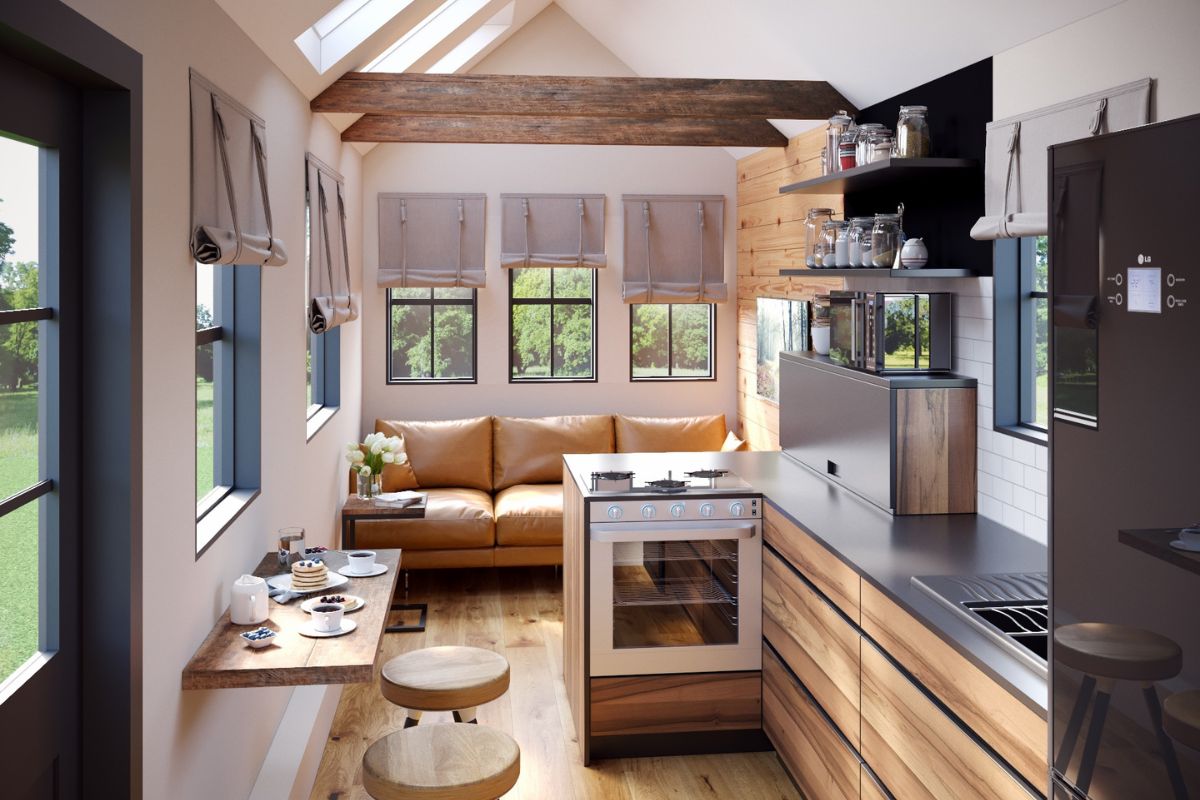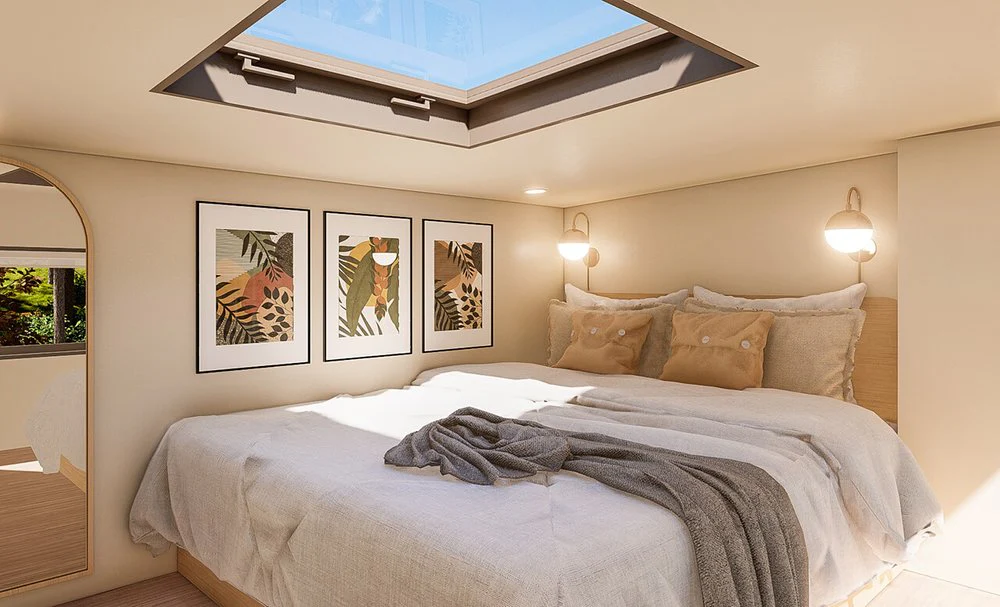Reducing Stress through Minimalism

This article was developed via a partnership with BetterHelp.
The modern world is stressful. Part of this stress comes from all the noise—news 24/7, texts 24/7, social media 24/7, etc. But a significant amount of our stress comes from stuff. Many of us have an unhealthy relationship with material objects, and our constant accumulation of said objects can easily lead to high levels of stress.
This article will explain how you can reduce stress through minimalism, which is both a very fitting philosophy as well as a practical mindset for the tiny house community.
Minimalism 101
Minimalism is many things. On the one hand, it’s an art movement that developed following World War II, where its sparseness seemed to accurately reflect the somber postwar mood. That said, the roots of minimalism are far more ancient.
For example, minimalism is of fundamental importance to the Japanese culture of Zen philosophy. You may have heard the term wabi-sabi, which is about recognizing and privileging the beauty of simple, unadorned objects.
Nowadays, minimalism is often thought of in terms of our relationship with consumer culture. Someone who considers themselves a minimalist will endeavor to limit themselves primarily to objects that they need, that is, that have some utility.
The rise of minimalism in recent years has had many influences and manifestations, including the tiny home movement. One outsized influence has been that of Marie Kondo, who has inspired hundreds of thousands of people to de-clutter their lives.
How Minimalism Reduces Stress
So, now that you know the basics of minimalism, read on to learn about how minimalism can help us to reduce our stress.
And if you would appreciate having more resources when it comes to managing your stress, you might consider the helpful content available online through BetterHelp.
Mess = Stress
Since minimalism is ultimately about having few things, and primarily only things that are of necessity for your well-being, you will tend to have less of a mess in your home.
And less mess = less stress. Have you ever felt like you could get more work done with a clean desk? There’s something to that. Having a tidier, simplified home will make everything you do that much simpler. Things will be easier to find, and you will save yourself time and money.
More Resources at Your Disposal
Speaking of time and money, who wouldn’t like more of them?
When we accumulate unnecessary items, we are spending both money and time to do so. Embracing a minimalist mindset can be so freeing because you will no longer feel like you have to look through that Target catalog or browse Amazon on “Prime Day.”
Having more time and money will not only reduce your stress but also allow you to spend that surplus time and money on things that really matter, like experiences (e.g. traveling) or loved ones.
Improved Focus
Having fewer things can reduce your stress by allowing you greater focus. When you get rid of all the extraneous stuff in your life, you will likely feel calmer and more ready to tackle your day.
And when we have greater focus, we can get more done in less time, allowing us extra time for ourselves and the things and people we care about.
Greater Self-Control
Consumer culture is incredibly effective at convincing us to consume non-stop. After all, corporations spend billions of dollars on advertisement. Billboards, magazines, social media, television, browsing the internet—it’s nearly impossible to escape it.
By rejecting consumer culture and instead embracing minimalism, you’ll learn to exercise greater self-control. And when you have greater mindfulness—i.e. you have greater control over your thoughts and actions—you will more easily be able to ignore the constant refrain of capitalism that urges you to consume more and more every single day.
Minimalism can help lead the way to greater mindfulness (and vice versa), which in turn will help you reduce your stress and live a more meaningful and authentic life.
Privilege Quality
Consumer culture constantly convinces us to privilege quantity over quality. Does your iPhone still work? Who cares! We’ve got a new one for you! Want a t-shirt for $3? Here you go! Just buy another one when it gets a hole in two months.
This mindset has truly spread and there are very few of us who are totally immune to it. After all, we all naturally want to save money and think of ourselves as getting a good deal. But when we have to buy 5 $5 shirts in one year instead of one high-quality $20 shirt, then we end up losing out on $5 (not to mention the environmental damage and human rights concerns).
By privileging quality over quantity, you can reduce the number of items you have and thus greatly simplify your life, which in turn reduces stress.
Stay More Easily in the Present
The constant impulse to consume means that we are always looking ahead. When does that sale start? When does the new iPhone come out? What about that Netflix series?
If we focus more so on the present, we tend to be happier and more grounded. Minimalism can help us reduce our stress by allowing us to stay more easily in the present and focus on the here and now rather than constantly think (and worry) about what’s happening tomorrow.
Prioritize What Matters
Finally, minimalism helps us prioritize what matters. When you pare down all your belongings to what really matters most to you (on a utilitarian and sentimental level), you’ll feel better with each extraneous thing that you move on from.
By allowing us to focus on what we really need, minimalism can help re-shape our way of living into something that’s more aligned with nature. This approach can greatly reduce unnecessary stress and lead to a calmer existence.
Conclusion
Minimalism makes perfect sense for the tiny home movement. After all, it’s all about freedom from things and being content with a smaller space.
The fact that minimalism can also greatly reduce our stress is a wonderful bonus. At the same time, it can be downright life-changing, which is why this philosophy should not be discounted. Give it a try—it’s not likely you’ll regret it!







.jpg)

